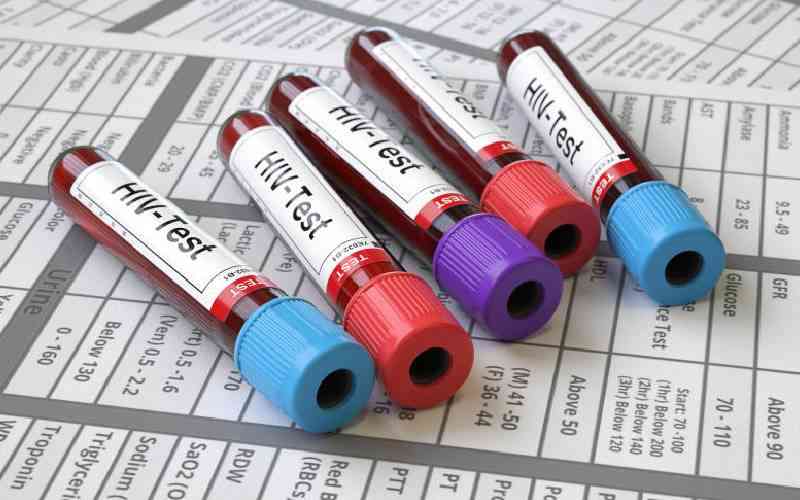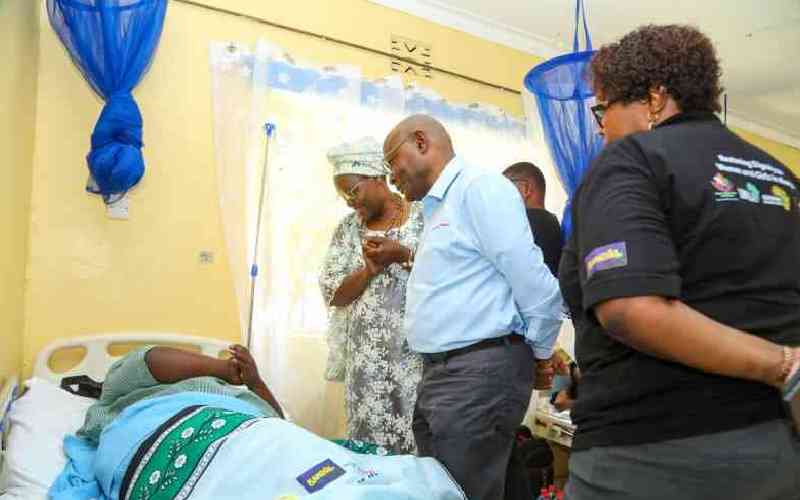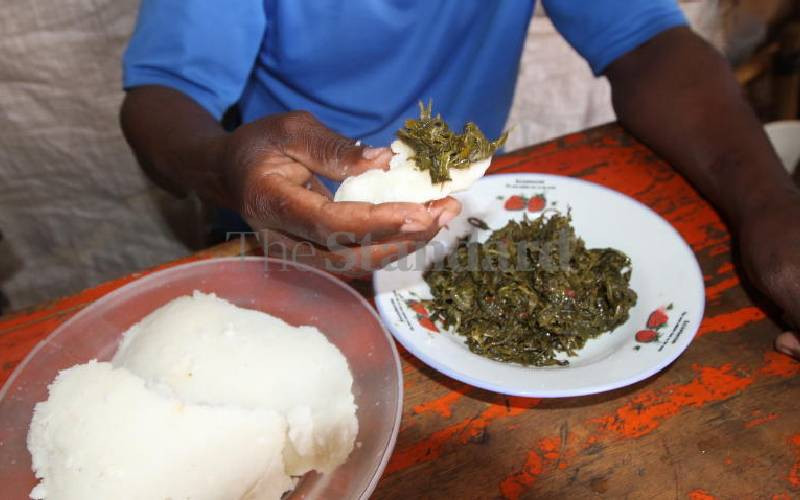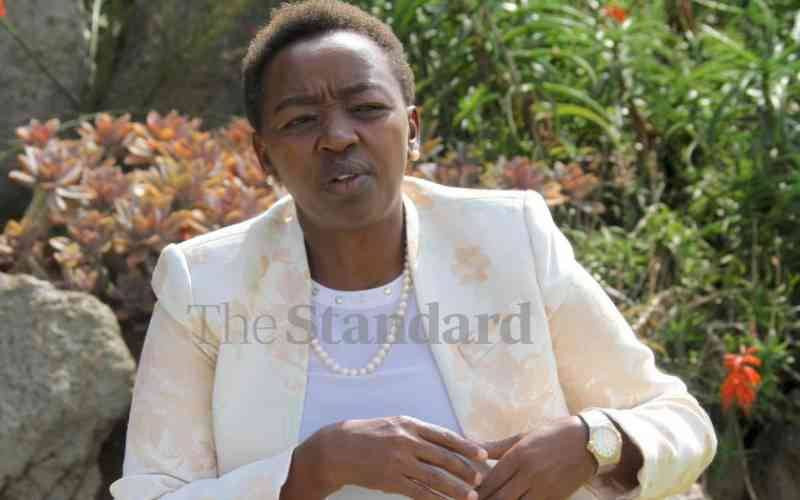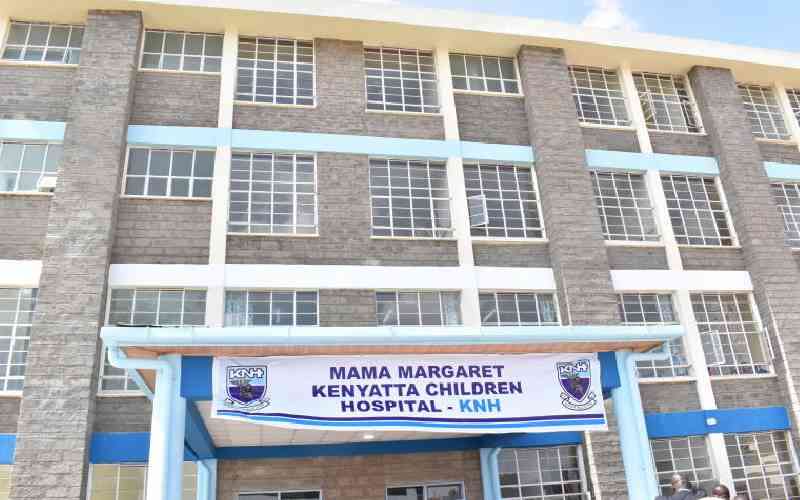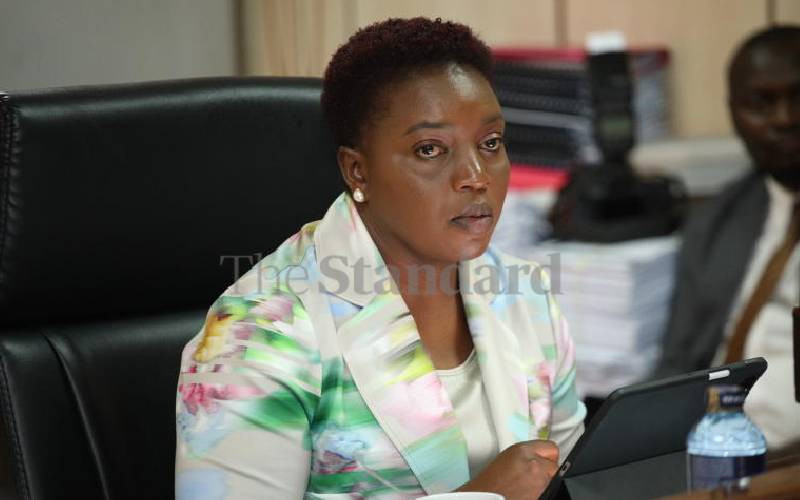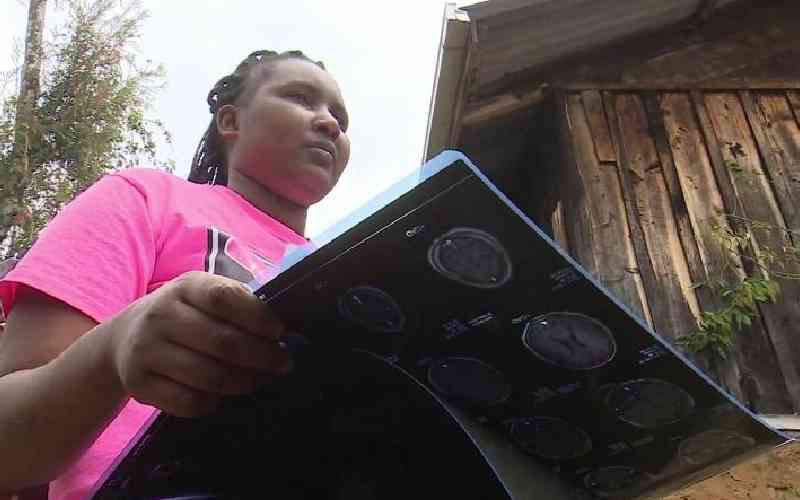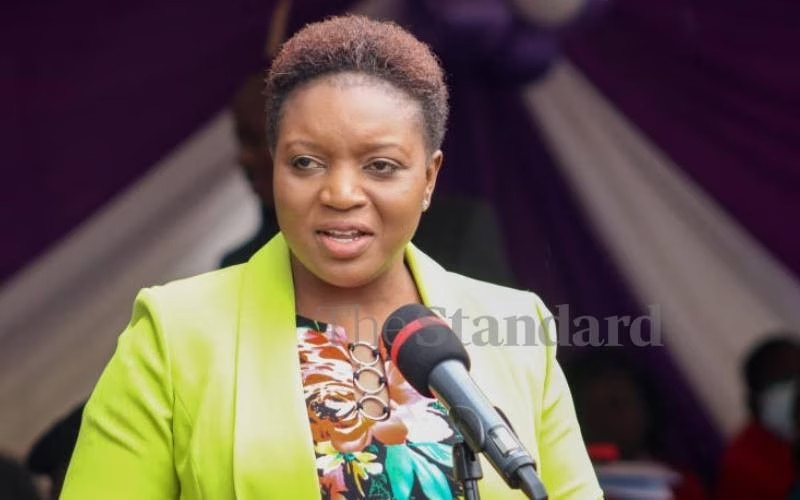
The Ministry of Health is set to establish a regulatory body that will determine the amount of money that every Kenyan will pay to the newly enacted medical insurance scheme.
The regulatory body, to be established by Health Cabinet Secretary Susan Nakhumicha, will also oversee the implementation of the newly enacted Universal Health Coverage (UHC) Acts.
In an interview with The Standard, Ms Nakhumicha said the regulatory body will determine how much Kenyans will be paying.
"...in terms of premiums that Kenyans will pay, we are currently working on it," the CS said, adding that each Kenyan will register with the Social Health Authority.
A source at the ministry intimated that experts and ministry officials will meet in Mombasa next week to discuss the establishment of the regulation including amount of deduction to the medical scheme and when it should commence.
Once completed the experts opinion will be presented to the National Assembly, Regulation Committee for endorsement.
The Director of Health Financing at the Ministry of Health Elizabeth Wangia said the 2.75 per cent proposed by President William Ruto is an amount stipulated under the National Health Insurance Fund, Regulations 2023.
- NHIF assures Kenyans as it prepares for transition
- Empowering mothers key to reducing maternal and perinatal deaths
- Kenya committed to bringing an end to endemic malaria
- Why we must up spending on public sanitation
Keep Reading
"With the passing of the Acts, we shall need to come up with regulations to guide on how much everyone will pay," said Dr Wangia.
According to NHIF Regulations, 2023 a contributor in salaried employment shall pay a standard contribution rate of 2.75 per cent of the gross monthly income derived from employment in the preceding months.
"A contributor shall pay Sh300 where the amount...is less than Sh300," reads a section of NHIF regulations, 2023.
Nakhumicha said currently, mode of payment to NHIF is not standard, for instance some people pay more than 14 per cent, whereas others pay as little as 1.4 per cent, regardless of being high income earners.
Standard payment
The transition to the Social Health Authority, which will transition from the National Health Insurance Authority (NHIF), will take 12 months.
"Kenyans have been paying so much without proper structures. When we did our analysis, we found out that there are those Kenyans who were paying as high as 14 and 15 per cent of their salary to NHIF, whereas some were paying very little, like 1.4 per cent yet are high income earners," the CS said.
"One of the things we are going to do is that to ensure there is standard and consistency, in that when we put in a formula. Standard of pay will be based on income earned."
Nakhumicha acknowledged that majority of Kenyans are in the informal sector, and have not been remitting contributions to the public medical scheme, because of structure of the NHIF.
Data reveals that at least 80 per cent of Kenyans are in the informal sector.
The CS said unlike NHIF that had several schemed namely super, ordinary and compressive, Social Health Authority will not have any.
"What it (NHIF) had been doing is introducing schemes to take care of people in the informal sector," she said.
Patients with non-communicable diseases like cancer under the new scheme will access medicare using Chronic and Critical Illness Fund, but will be expected to be members of the Social Health Authority.
Once the patients deplete the set limit of benefits package under the authority, the patients will attend care without paying out of pocket.
Also, in the package is an emergency fund, where services will be accessed to anyone in an emergency state like accident survivors.
Wangia assure that the Government will pay for vulnerable and destitute.
"In any country, you can't achieve UHC if you cannot focus on poor and very vulnerable and people with severe disability. In the model, the government will continue targeting 5.2 million households for support," she said.
 The Standard Group Plc is a multi-media organization with investments in media platforms spanning newspaper print
operations, television, radio broadcasting, digital and online services. The Standard Group is recognized as a
leading multi-media house in Kenya with a key influence in matters of national and international interest.
The Standard Group Plc is a multi-media organization with investments in media platforms spanning newspaper print
operations, television, radio broadcasting, digital and online services. The Standard Group is recognized as a
leading multi-media house in Kenya with a key influence in matters of national and international interest.

